Coal is Dead
Travis Hoium (TMFFlushDraw) Apr 11, 2015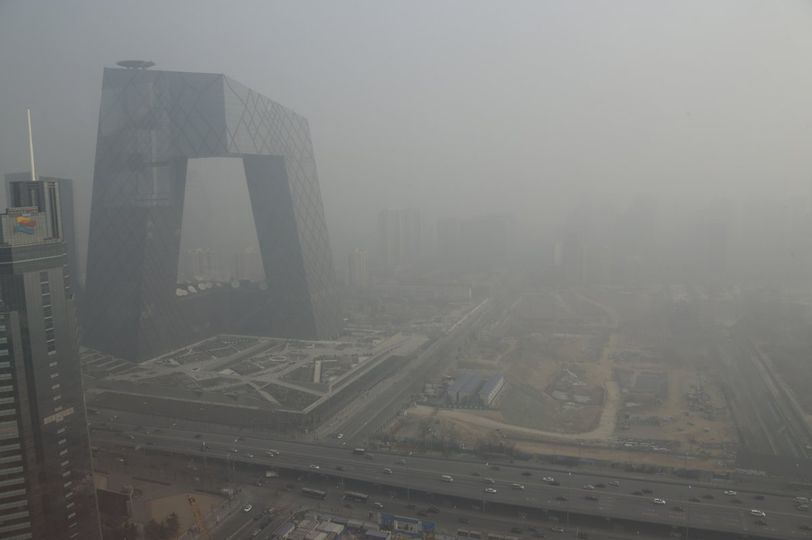
Coal is DeadTravis Hoium (TMFFlushDraw) Apr 11, 2015 |

|
Coal Is Dead: It's Time to Accept It.
The coal industry is on life support, and that's not changing anytime soon.
For years, coal supporters have been saying that a turnaround is just around the corner. China's demand is about to pick up, domestic environmental regulations will be struck down and we'll fire up coal plants again, or clean coal is here!
Let's face it: Coal is dead, and it's been a long time coming. Peabody Energy (NYSE:BTU), Arch Coal (NYSE:ACI), Alpha Natural Resources (NYSE:ANR), and others are just barely holding onto survival while reporting hundreds of millions in losses annually. But they'll eventually be scrapped for parts as the energy industry moves to cheaper forms of energy. Whether you accept it or not, that's the reality of coal in 2015.
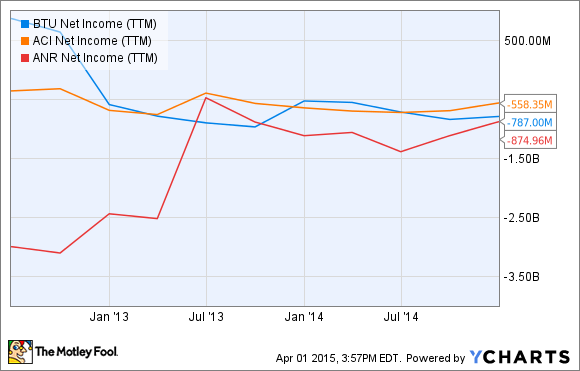
No one wants to build coal power plants
Whether it's regulations, smog, or cost, there's no country that wants to build more coal power plants than it absolutely has to. That puts coal producers in a tough position, dealing with falling demand and competitors that are fighting over scraps of the coal market.
China has been reliant on coal for energy growth, but cities choking on pollution have pushed the country away from the fossil fuel. Beijing is shutting down all four of its coal plants to reduce pollution and replace them with plants burning natural gas. The country has also made a huge investment in renewable energy, installing more wind and solar than any other country in the last two years.
India has said it wants to end coal imports in the next two to three years. Next to China, this is the other driver of coal demand in the past five years, helping offset consumption declines in Europe and the U.S.
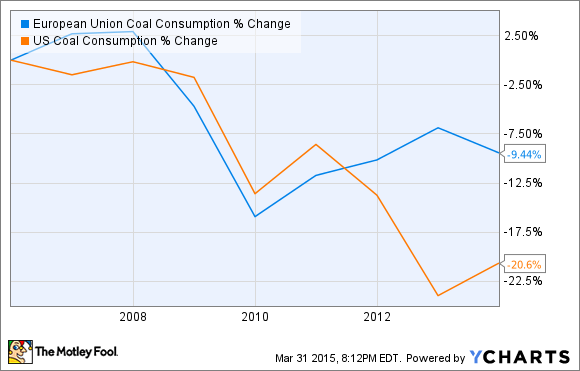
If developing countries like India and China are reducing imports and reliance on coal, and developed countries like the U.S. and Europe are already cutting back on coal consumption, where will all the coal go?
The big problem for coal isn't regulation, it's competition
Coal supporters like to blame regulation for coal's current demand problems. That's part of the problem, but the bigger problem is competition. As coal plants age, it is now more cost-effective to build natural gas plants, wind, and even solar power plants to replace them.
Below is Lazard's levelized cost of energy ranges for natural gas and coal plants in the U.S. You can see that coal was more expensive than natural gas long before recent EPA regulations were proposed.
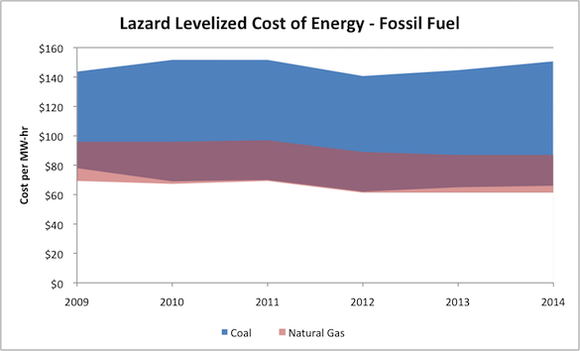
Coal versus solar or wind is even more problematic, because not only are they lowering costs at a rapid rate (while the cost of coal slowly rises), they're now lowering costs below even the low end of coal in some locations. In the chart below, you can see that coal's cost range of $66-$151 cents MW-hr has been overtaken in the past couple years by wind at $14-$67 per MW-hr and solar at $56-$86 per MW-hr today.
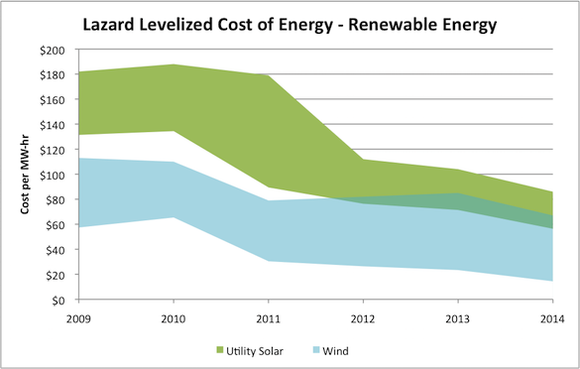
Coal is simply no longer cost-effective versus alternative energy sources.